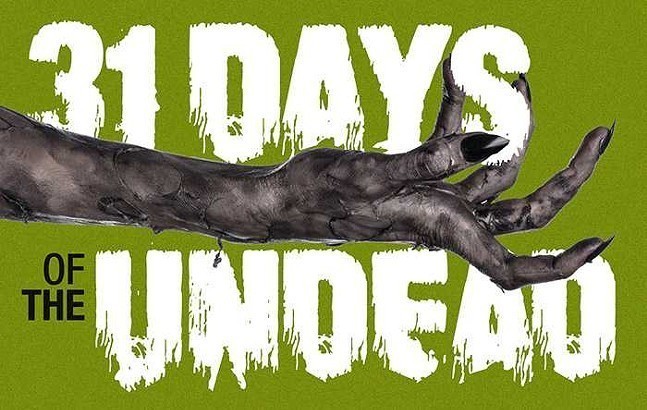In honor of Romero Lives!, the city's month-long George A. Romero tribute, Pittsburgh City Paper presents 31 Days of the Undead, a series of reviews and essays about zombie media. Look for new posts going up every day from now through Oct. 31.
28 Weeks Later [This review contains spoilers for both 28 Weeks Later and 28 Days Later. In fact, it contains little else.]
It might not have seemed like it when the film premiered in 2003, but Danny Boyle's 28 Days Later is pretty upbeat. The movie is violent and disturbing, but at its heart and climax, there's the belief that altruism and faith in humanity can win out even in an apocalyptic setting. A guy wakes up from a coma, and, having missed the whittling down of morals and sympathy the zombie epidemic has effected on his fellow survivors during his time-out, he has a distinctly idealistic mindset in comparison. And his ideals pretty much save the day. The thing almost has morals.
The sequel, 28 Weeks Later, more or less says, "nevermind."
The film, directed by Juan Carlos Fresnadillo, opens at a remote English cottage where a handful of survivors have settled into a routine of eating non-perishables by candlelight and stifling their paranoia and bickering to a manageable level. There's a nice old couple who own the farm, a grumpy pessimistic man, a woman whose boyfriend has been missing for a week, and a middle-aged married couple, Don (Robert Carlyle) and Alice (Catherine McCormack).
Don and Alice have children whose fates remain uncertain at that point, but there's serious love and trust evident in the short time we spend with them before a child survivor shows up with a pack of infected in tow. The cottage is attacked and the survivors are picked off one by one, until, in one of maybe the whole genre's more shocking turns, Don abandons Alice in brutal fashion and makes his way off from the attackers in a motor boat.
Twenty-eight weeks later, the American military has restored London to someplace vaguely livable and survivors are gradually, and hesitantly, being flown in. Among them are Don and Alice's children, Andy (Mackintosh Muggleton) and Tammy (Imogen Poots), who are excited to be reunited with their dad, though he tells a slightly modified version of their mom's outcome.
The prominent American military characters fall neatly into idealistic and self-preservationist camps: Brigadier General Stone (Idris Elba) has the heavy burden of a "trolley problem" on a global scale, deciding how many innocents are worth sacrificing to save humanity (his conclusions tend to err on the "fuck it, kill 'em" side, though not without anxious pacing and remorse). Somewhere in the middle is helicopter pilot Flynn (Harold Perrineau), who wants to be optimistic but understandably doesn't want to submit himself to zombie-life, which seems to suck. The optimists are a sniper named Doyle (Jeremy Renner) and medical officer Scarlet (Rose Byrne), who break military protocol to keep Andy and Tammy alive when the quarantine is broken and they learn that the kids' blood might have the key to a zombie antidote.
Whatever is in their blood, they got it from their mom, who has unexpectedly survived despite being infected. Dad has no such luck and, once infected, is wholly focused on converting the kids to his side.
Once Stone embraces the "fuck it" mentality, there are some horrific scenes of snipers gunning down survivors to keep the infection contained. The imagery of people in cages and crowds of people being decimated by assault rifles was surely upsetting when the film was released in 2007, though it is particularly disturbing now. Not to lay too heavy a hand on it, but it's films like this that underline why zombie movies have such staying power; there's an unfortunate timeliness and universality to the philosophical challenges the genre brings to a front, particularly in what can be stomached and justified for self-preservation and self-interest.
But 28 Weeks Later takes a decidedly more grim approach to that idea. The first film opens with naiveté and optimism, then has that mindset challenged in the middle before the good of human nature wins out in Act III.
In this one, the first thing we see is the ease with which humans can abandon morality in dire situations. The middle part is all altruism and sacrifice for the greater good, but the conclusion ends where it started: Flynn saves the children via helicopter and takes them to France, and 28 days later, Paris is overrun with the infected. It's a similar philosophical journey, but in this case, idealism and faith are a fool's errand that ends up possibly dooming life on earth entirely.
Or maybe they're just setting things up for another sequel. Twenty-eight years later from the first film will be 2030. Keep your eyes peeled.



